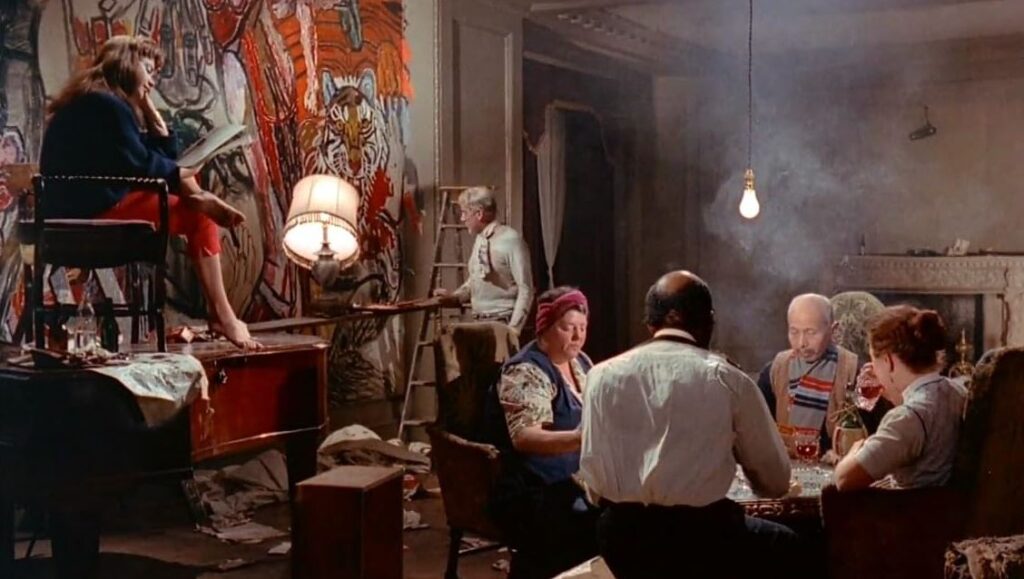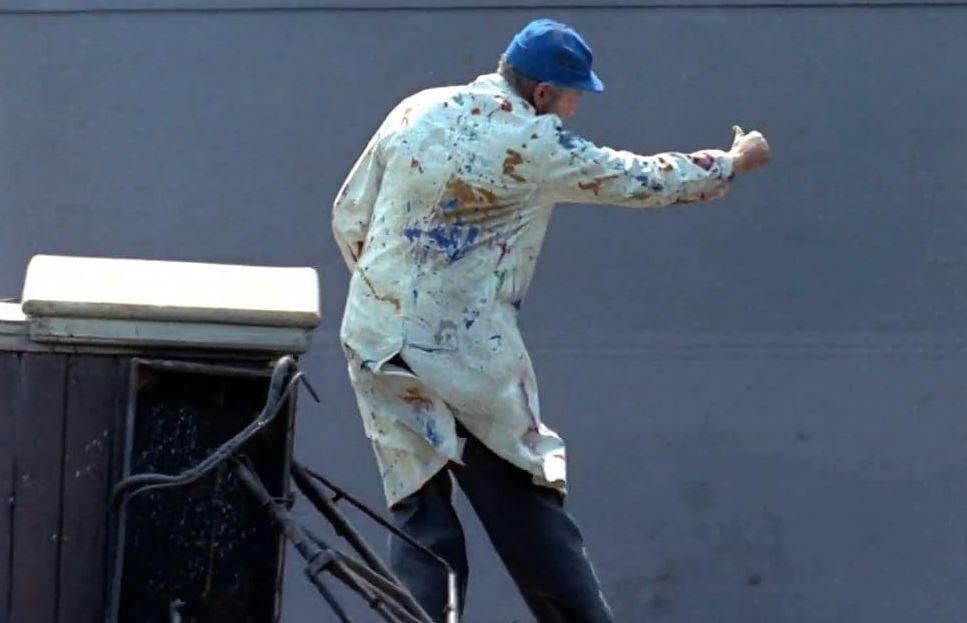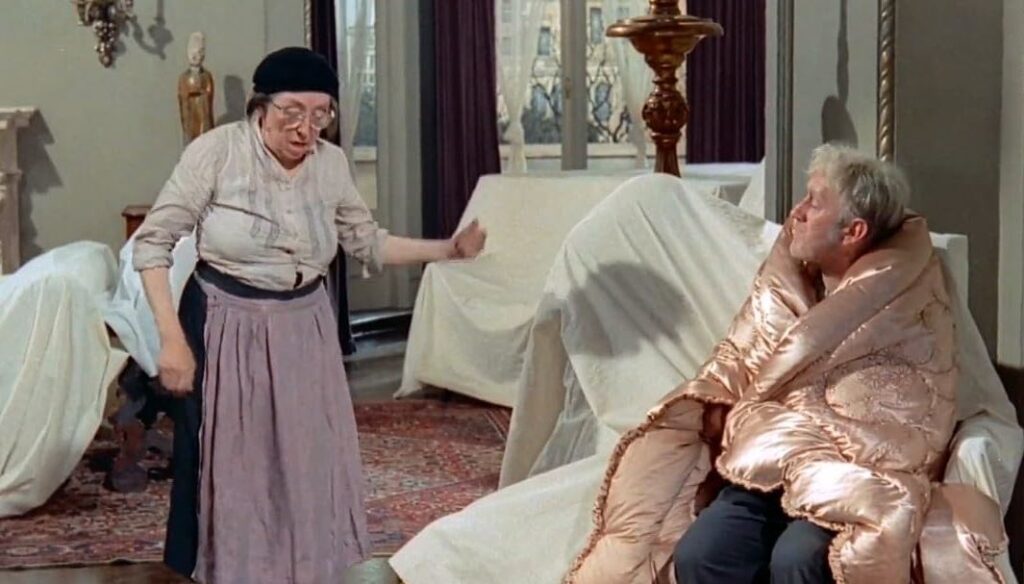
Artist Gulley Jimson is “mad, bad, and dangerous to know”.
Directed by: Ronald Neame, Screenplay by Alec Guinness
Based on The Horse’s Mouth 1944 novel by Joyce Cary (Joyce Cary was actually a man, not a woman, all you Tarantino fans)
With: Alec Guinness as Gulley Jimson, Kay Walsh as Miss D. Coker, Renée Houston as Sara Monday, Mike Morgan as Nosey, Robert Coote as Sir William Beeder, Arthur Macrae as A. W. Alabaster, Veronica Turleigh as Lady Beeder, Michael Gough as Abel [Bisson]
Like every true artist, Gulley Jimson is on a quest for the perfect canvas for his vision of, in this case, The Raising of Lazarus, be-it on a wall, a ship’s hull or a condemned church. He’s realistic about his profession. “Go and do something sensible, like shooting yourself! But don’t be an artist!” he tells his lone acolyte (you might substitute the words screenwriter, actor, or even director for ‘artist.’ You’re safe aspiring to be a movie reviewer. That avocation requires little or no talent, skill, education or insight; only an opinion, deserved or not, hence the career of television personality Roger Ebert).
Like Michelangelo or Da Vince, he is always in need of funds in order to pursue his vision. I might point out his is a true vision, unlike the “vision” attributed to various and sundry film directors by gullible reviewers.

The truth is in General von Moltke’s observation, “No plan of operations can with any safety include more than the first collision with the enemy’s main body.” may be applied to a motion picture shoot by substituting the words ‘first day of production’ for the ‘enemy’. Especially if horses are involved. It is oft time observed that making a movie is like going to war.
His lone patron is sick of his pestering for additional funds and only wishes a peaceful journey to the grave, untroubled by a dipso genius in constant need of paint brushes, tubes of flake-white (among other colors), and spirits: distilled and brewed.
He is able to con women even well into middle-age, a talent many who follow the way of the artist seemed to enjoy, although performers like musicians and preachers appear to make-out the best. The misogynist phrase chick-magnet is the most descriptive. One of his youthful conquest’s attests: “Oh, Gully. God bless you. You don’t throw a woman’s weakness in her face. You know how God made us. That’s the funny thing about you. You know about women.”
We meet him upon his release from jail, inside for abuse of his patron, “It’s the kind of face you want to throw a brick at, don’t you think?” Needless to say, he remains untroubled by the niceties of civilization, like good manners or respect for the personal property of others. He follows this paraphrase of a quote from William Faulkner,
“The artist’s only responsibility is to his art. He will be completely ruthless if he is a good one. He has a dream. It anguishes him so much, he must get rid of it. He has no peace until then. Everything goes by the board: honor, pride, decency, security, happiness, all, to get the book written. If an artist has to rob his mother, he will not hesitate; the ‘Ode on a Grecian Urn’ is worth any number of old ladies.” With apologies, Bill.

Alec Guinness gives a performance that might just help dampen the memory of the tiresome Obi-Wan Kenobi and his pop theology. May the farce be with you. (Hey, I like the movie also, but let’s face it, he ain’t exactly Saint Augustine.) He’s a delight.
Guinness’ screenplay trimmed down the social commentary of the novel to focus on the plight of Gulley Jimson, the artist. After the needs of commerce destroy his attempt of the immortal, he unmoors his scow of a barge home on the Thames and sets out for new horizons. His parting words from G.K. Chesterton.
“For there is good news yet to hear and fine things to be seen,
Before we go to Paradise by way of Kensal Green.”
You got it straight from the horse’s mouth.“
Leave a Reply